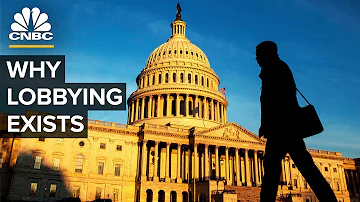What is lobbying and how does it work?
Table des matières

What is lobbying and how does it work?
How Does Lobbying Work? ... Through lobbying the lawmakers and meeting with them as well as through a series of conferences and other modes of persuasion and influence, lobbyists can indeed help their clients in protecting their business interests.
What is the main purpose of lobbying?
Lobbying provides access to government legislatures that no single individual could possibly hope to achieve. By grouping individual goals together into a lobbying aim, lobbyists represent the interests of many and are more likely to be heard by legislatures than if they came bearing the concerns of one voter.
What is the purpose of a lobby?
A lobby is typically formed to influence government officials to act in a way that is beneficial to the lobby's or an industry's best interests, either through favorable legislation or by blocking unfavorable measures.
Who is the largest lobbying group in America?
In 2020, the top lobbying spender in the United States was the National Association of Realtors, with a total spending of 84.11 million U.S. dollars.
What are the different types of lobbying?
- The two different kinds of lobbying are direct and indirect lobbying. Indirect lobbying occurs when the interest group communicates with the people who then get in touch with the people who make the laws.
What are lobbyists and what do they do?
- A lobbyist is a person who works to persuade government officials on particular pieces of legislature. Lobbyists often work on behalf of an organization, corporation or group to push legislature benefiting that group's interests or needs.
What is an example of lobbying?
- The definition of a lobby is a central hall at the entrance to a building or a large waiting room. An example of a lobby is the reception area in a large business office.
What does lobbying mean?
- In politics, lobbying, persuasion, or interest representation is the act of lawfully attempting to influence the actions, policies, or decisions of government officials, most often legislators or members of regulatory agencies.













